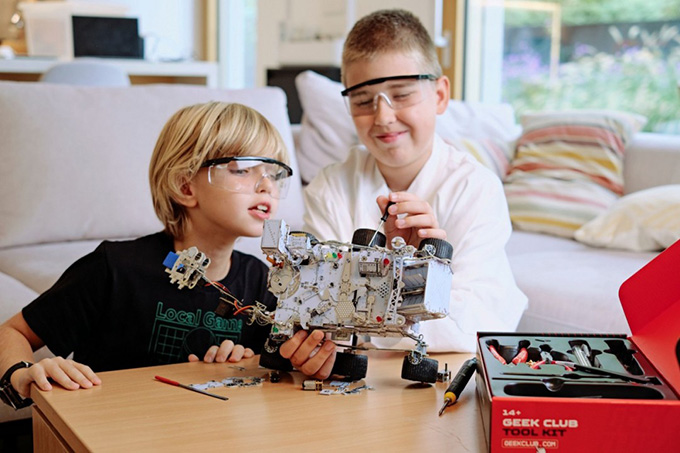
Whilst it was once a distant concept from a futuristic world, artificial intelligence (AI) is now becoming ever more integrated within modern society. From personal assistants on our mobile devices and in our homes, to academic and professional AI-driven shortcuts and tools, it seems impossible to avoid using AI at some point in our lives. As a result, parents are likely to wonder if, and when, they should be introducing their children to AI.
Here, we explore the benefits and potential risks of doing so, to help you decide what is right for your family.
Using AI in an educational setting
Though many were understandably skeptical about the risks of AI usage within educational settings, the reality is that this innovative technology can be very beneficial to students – when used in an ethical manner. For students, platforms such as Duolingo and Khanmigo have proven that AI can be used to help users learn at their own pace; providing instant feedback, identifying strengths and weaknesses, and offering personalized recommendations which enhances the efficiency of students’ revision.
It’s also likely that your children will encounter some form of AI-based tools within their school settings, so by introducing them to the technology yourself, you can help prepare them ahead of time.
Building skills for the future
The job market is a constantly changing and evolving network which is already being influenced by AI and automation. Teaching children how to leverage this technology from an early age can better equip them with the skills they may need to pursue a tech-heavy career, such as data science, robotics or machine programming, later in their lives.
Even if they choose a different path, understanding how AI works and how to use it safely and ethically is important in a world where it is likely to impact most industries. Plus, introducing children to AI can help to spark curiosity and encourage critical thinking, as they can learn to question how algorithms work, and begin to understand the differences between human and machine data processing, biases, and results.
Dependency and screen-time
One of the main concerns parents have when it comes to letting their children use AI-powered tools is the increased screen time that naturally follows. Many AI tools encourage regular use, and screens as a whole have been shown to be addictive. Overuse can also have negative effects on children’s attention spans, physical health, and emotional wellbeing.
Of course, no parent wants their child to become over-reliant on devices or have extended time in front of screens, so finding a balance between maintaining healthy habits and learning to navigate the world of AI is key.
Social and emotional development
Another important thing for children to understand when using AI is that the interactions are fundamentally different from those with humans. While AI can simulate conversations in chat apps and games, they lack emotional depth and empathy. Relying on an AI for company or communication is likely to hinder children’s social and emotional development, and this could form an unhealthy attachment to the technology.
If you do let your children use AI, it’s essential they also have plenty of meaningful, face-to-face interactions with their friends and family. This way, they’ll learn to navigate human emotions and relationships properly.
Making it appropriate
Ultimately, the decision on whether or not to introduce your child to AI is yours. Teaching digital literacy, setting boundaries and allowing access to age-appropriate AI-driven tools can help to support learning and creativity whilst preparing them for an AI-focused future. But whether you choose to let them use it or not, having open discussions within your family about the technology is a great way to help your child gain an understanding of it.
